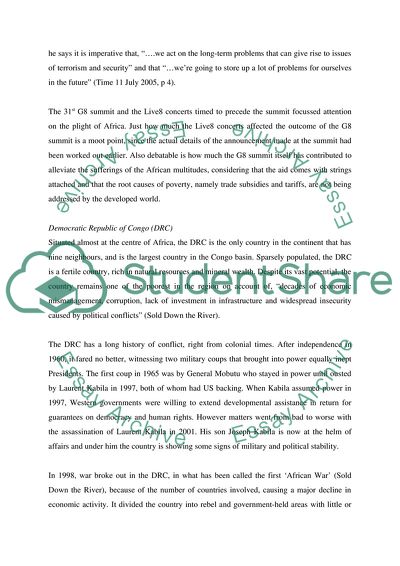Cite this document
(Live8 and the Democratic Republic of Congo Report Example | Topics and Well Written Essays - 3000 words, n.d.)
Live8 and the Democratic Republic of Congo Report Example | Topics and Well Written Essays - 3000 words. https://studentshare.org/macro-microeconomics/1535433-live8-and-democratic-republic-of-congo-what-changed
Live8 and the Democratic Republic of Congo Report Example | Topics and Well Written Essays - 3000 words. https://studentshare.org/macro-microeconomics/1535433-live8-and-democratic-republic-of-congo-what-changed
(Live8 and the Democratic Republic of Congo Report Example | Topics and Well Written Essays - 3000 Words)
Live8 and the Democratic Republic of Congo Report Example | Topics and Well Written Essays - 3000 Words. https://studentshare.org/macro-microeconomics/1535433-live8-and-democratic-republic-of-congo-what-changed.
Live8 and the Democratic Republic of Congo Report Example | Topics and Well Written Essays - 3000 Words. https://studentshare.org/macro-microeconomics/1535433-live8-and-democratic-republic-of-congo-what-changed.
“Live8 and the Democratic Republic of Congo Report Example | Topics and Well Written Essays - 3000 Words”. https://studentshare.org/macro-microeconomics/1535433-live8-and-democratic-republic-of-congo-what-changed.


